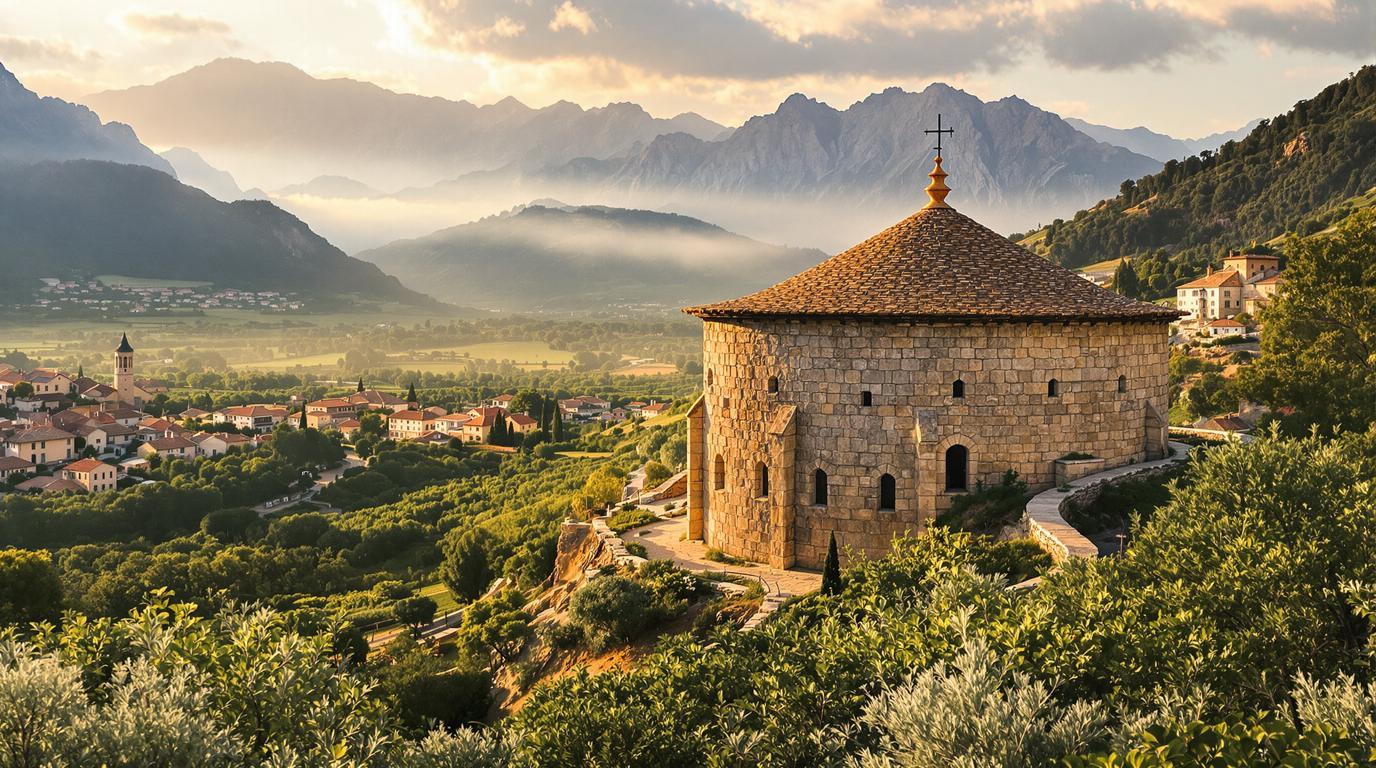In the Var department of southern France lies a village that seems frozen in time, where water-rich valleys once powered a thriving ice trade that kept Marseille’s seafood fresh. Mazaugues, a small commune of just 516 souls, offers travelers a rare glimpse into Provence’s industrial heritage while delivering the authentic rural experience increasingly difficult to find in this popular region.
The village that made ice in the Mediterranean
Standing 23 meters high with a diameter of 17 meters, the Glacière de Pivaut stands as a testament to Mazaugues’s fascinating past. This massive stone icehouse once stored winter ice harvested from the surrounding mountains, supplying Marseille’s markets before refrigeration existed. Today, this remarkable circular structure houses a museum that tells the story of this forgotten trade.
“Our village’s name comes from ‘Madaligas’ – literally ‘country of water’ – and that abundance made us the ice capital of Provence,” explains Marcel, a local guide whose grandfather worked in the ice trade.
Where medieval history whispers through stone archways
Wandering through Mazaugues reveals layers of history at every turn. The crumbling 12th-century château sits above narrow streets lined with traditional Provençal architecture. Stone archways frame views of the valley, while the village’s covered lavoir (public washhouse) stands as a beautifully preserved reminder of communal life from centuries past.
For history enthusiasts seeking authentic cultural experiences, Europe offers many remarkable preservation stories, though few remain as untouched as Mazaugues.
A hiker’s paradise hidden in the Sainte-Baume foothills
Mazaugues serves as a gateway to some of Provence’s most rewarding hiking. The GR99 trail connects the village to neighboring Signes and Tourves, while local ET trails like ET20 and ET43 offer loop options with spectacular valley views. For serious hikers, the IGN map #3345 OT is essential for exploring the Sainte-Baume massif’s network of paths.
The landscape’s dramatic character resembles certain coastal regions, though unlike French villages perched above dramatic beaches, Mazaugues’s beauty comes from its mountain setting and verdant valleys.
Liquid gold: Mazaugues’s olive heritage
While ice once defined the local economy, today olive oil represents Mazaugues’s agricultural pride. The village’s functional mill demonstrates traditional production techniques, and visitors can sample the region’s liquid gold directly from producers. During autumn harvest season, the mill buzzes with activity as locals bring their olive harvests for pressing.
“Our olive oil carries hints of the wild herbs that grow throughout our hills. It’s like tasting the landscape itself,” says Claudette, whose family has produced oil for generations.
Beyond the tourist trail: authenticity preserved
Unlike busier Provençal destinations, Mazaugues remains refreshingly authentic. The village café, adorned with quirky sports memorabilia, serves as the community’s heart. On Tuesday mornings, the weekly market brings regional produce and crafts to the main square, offering visitors a chance to shop alongside locals.
Those seeking similar authentic experiences might compare it to charming seaside towns with colorful houses, though Mazaugues offers a distinctly rural Mediterranean ambiance.
Photography tips: capturing Mazaugues’s timeless beauty
Photographers will find Mazaugues particularly photogenic on cloudy days, when the valley’s dramatic stone architecture stands in stark relief. The golden hour bathes the stone buildings in warm light, while the contrast between ancient structures and the surrounding natural landscape creates compelling compositions.
Like remote archipelagos with dramatic cliffs, Mazaugues rewards photographers willing to venture beyond obvious viewpoints.
Practical considerations for visitors
Mazaugues’s remote charm comes with practical considerations. The village has limited dining options, with just one hotel-restaurant open year-round. Visitors should pack snacks for hikes, download offline maps, and respect the afternoon quiet hours (12-2pm) sacred to rural Provence. The nearest major city is Marseille, about 60km southeast.
For those seeking wildlife alongside culture, Mazaugues offers a tranquil alternative to places like towns neighboring famous safari destinations.
In Mazaugues, you’ll find Provence without pretense—a village where time moves slowly, water shapes the landscape, and centuries-old traditions continue quietly despite the modern world’s rush. Here, authenticity isn’t manufactured for tourists; it simply exists for those patient enough to discover it.
